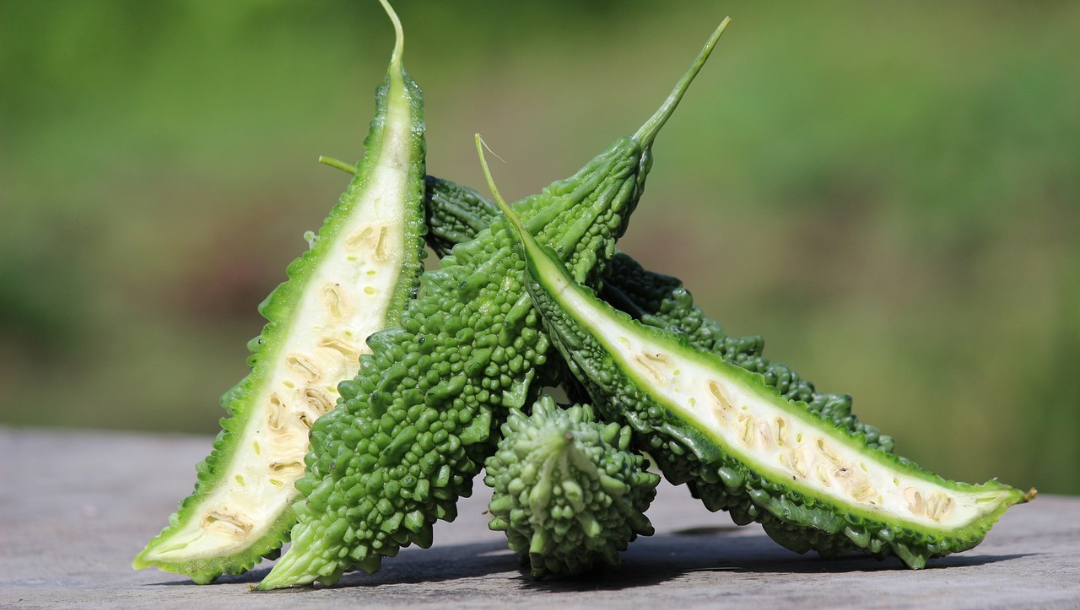In the realm of Ayurveda lies a peculiar and often misunderstood gem: Karela, also known as bitter gourd or bitter melon. With its knobbly exterior and unmistakably bitter taste, Karela might not win any popularity contests at first glance, but delve deeper, and you’ll discover a treasure trove of health benefits and culinary wonders.
Karela, scientifically known as Momordica charantia, is a tropical vine belonging to the gourd family, Cucurbitaceae. Native to India, it’s widely cultivated across Asia, Africa, and the Caribbean. Its distinctive appearance resembles a warty cucumber, with a rough, green skin and an elongated shape.
Potent Medicinal Plant
In Ayurveda, Karela is esteemed for its potent medicinal properties. Its bitter taste is believed to balance all the doshas, the three fundamental energies believed to govern physiological and psychological processes in the body. Ayurvedic practitioners utilise the plant to support digestion, regulate blood sugar levels, purify the blood, and promote overall well-being.
Modern research corroborates many of the traditional uses of Karela. Here are some of its notable health benefits supported by scientific studies:
Blood Sugar Regulation: Karela contains compounds like charantin and polypeptide-p, which have been shown to lower blood glucose levels, making it a valuable ally for individuals managing diabetes. A study published in the Journal of Ethnopharmacology found that Karela extract significantly reduced fasting blood sugar levels in patients with type 2 diabetes.
Antioxidant Powerhouse: Rich in antioxidants such as flavonoids, polyphenols, and vitamin C, the plant helps combat oxidative stress, thereby reducing the risk of chronic diseases and promoting youthful vitality.
Digestive Aid: Bitter compounds in Karela stimulate the secretion of digestive enzymes, enhancing nutrient absorption and easing digestive discomforts like bloating and constipation.
Immune Booster: It boasts antimicrobial properties that help fortify the immune system, shielding the body against infections and illnesses.
Research published in 2022 demonstrated that M. charantia leaves showed interesting antibacterial activity against Klebsiella pneumoniae, and could be considered as an alternative antibacterial source in combating infections.
Another study published in 2007 concluded bitter gourd extract improves insulin sensitivity, glucose tolerance and insulin signalling in HFD-induced insulin resistance.
Embrace the Bitterness
Despite its bitter taste, Karela has carved out a niche in various culinary traditions, especially in Indian cuisine, where it stars in an array of delectable dishes. From crispy bitter gourd chips and tangy pickles to savoury curries and stuffed delights, Karela adds a unique depth of flavour to culinary creations.
The bitterness of Karela is often balanced with complementary ingredients like spices, tamarind, jaggery, or yogurt, resulting in dishes that tantalise the taste buds and offer a harmonious blend of flavours.
The next time you encounter this humble vegetable, dare to embrace its bitterness, for within its depths lies a world of wellness waiting to be discovered. Even if fresh bitter gourd isn’t readily available in your area, you can incorporate it into your daily regimen as a herbal tea or in extract form.

